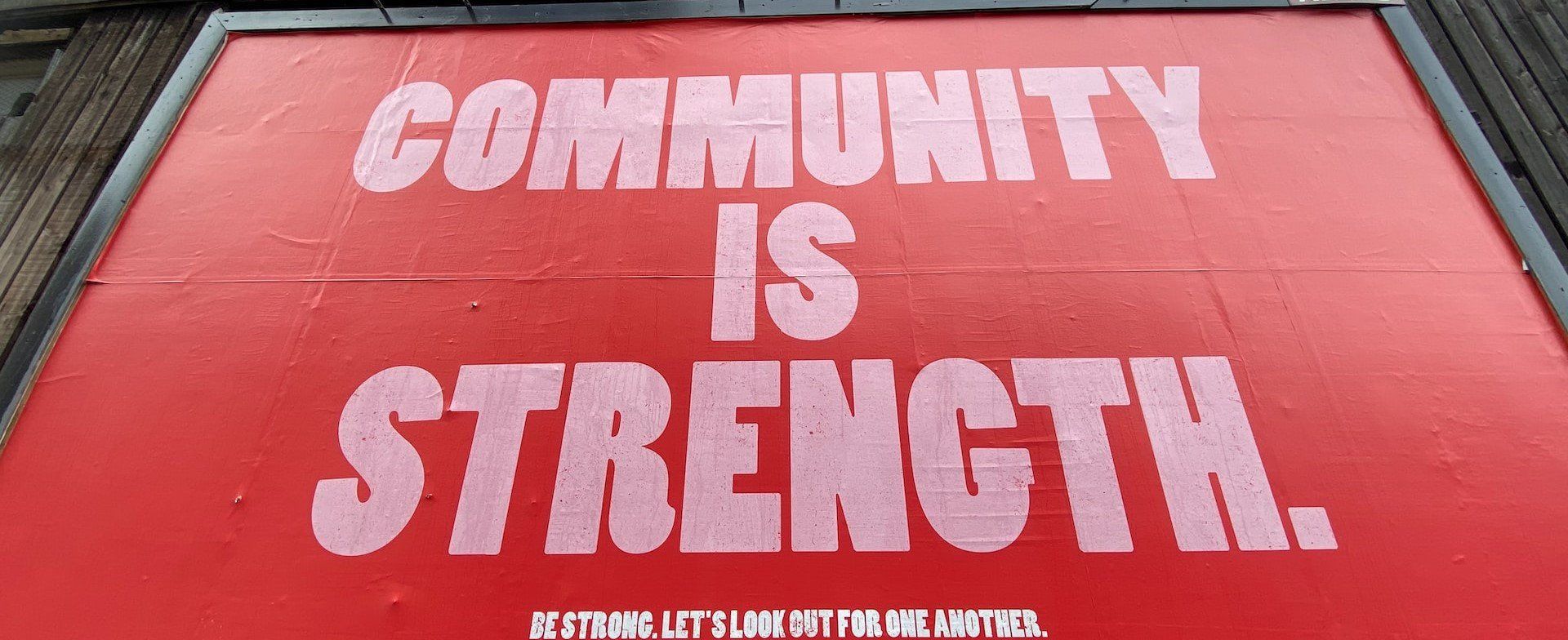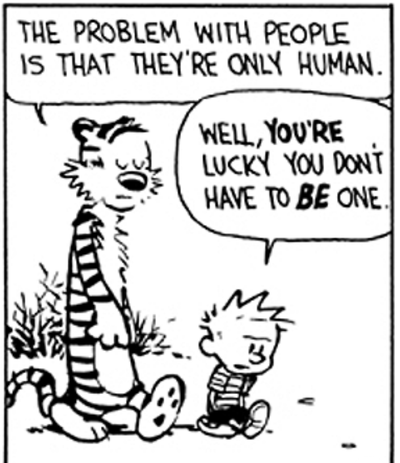Learn more about my book "The Courageous Ask"
Human Nature in Nonprofit Leadership
In the first article of this series I was very clear when I wrote, “Ultimately, the blame for a leadership fall is almost always a leader’s own. There is simply no way of getting around it. The decisions they made, the actions they took, the words they spoke. It’s on the leader nearly every time. Period.”
It is very important that the reader remember these points because there may be a temptation, during the reading of these next few articles, to think I am placing the blame for a leadership fall somewhere other than the leader themselves.
I was also clear in declaring, “There are stumbling blocks and challenges in the natural journey of leadership that can exploit human weakness, possibly manifesting in a leadership fall.”
In this series of articles I am working towards identifying a proactive approach to prevent nonprofit leadership falls. In order to find the path to solving any problem, the problem needs to be defined. Over the next few articles, I will attempt to define the issues that contribute to the fall of nonprofit leaders.
(This article is the fourth in a series that focuses on starting a conversation centered on preventing the fall of nonprofit leaders. I write it from a Christian perspective, but all leaders will benefit. Be sure to sign up to receive these articles via email every Tuesday at briankreeger.com. In addition to receiving these articles two days before they hit social media, you will receive the Introduction and the Appendix (My story) to my upcoming book, The Courageous Ask: A Proactive Approach to Prevent the Fall of Christian Nonprofit Leaders.)
This article brings forth the biggest roadblock that can stand in the way of nonprofit leadership fall avoidance: Human Nature.
What does human nature have to do with it?
Mark Twain wrote, “There is a great deal of human nature in people.” Ok, pretty obvious. Bill Watterson in Calvin and Hobbes once wrote, “The problem with people is that they’re only human.” Ok, now we’re getting somewhere.
And who makes up leadership? Humans. Who makes up an accountability structure? Humans. Who makes up a congregation or constituency? Humans. And on and on….
Humans have a nature that encompasses a complex design of emotions, traits, and characteristics that affect the way we feel, act, and think.
To not acknowledge that human nature plays a huge part in the relationships around, and with, the leader--including those inside their accountability structure--would be a fairly obvious mistake.
Defining human nature is as difficult as defining a human in all the complexity the term implies. Plus, everyone has different definitions and parameters around human nature, depending on individual perspectives and life experiences.
It seems like we randomly throw out the statement, “That’s just human nature,” not thinking about what we are really saying. It’s become kind of a throwaway phrase with a wide array of interpretations.
For the Christian, human nature was a piece of cake until sin entered the world. The Christian continually fights against their human nature and makes that nature obedient to God to the best of their ability. This difficulty is what lands human nature at the beginning of the definition of the problem, as related to leadership falls.
A listing of great things people do for each other and for the world around them as part of human nature is innumerable. If you want to bring me to tears, tell me a story of how someone came to another person’s rescue through their own sacrifice. That gets me every time.
But, unfortunately, the list on the other end of that spectrum is just as long, if not longer. Reports of physical crimes, emotional abuses, and dehumanizing efforts abound. Tales of the interpersonal workings of pride, self-promotion, and judgment are all around us.
So, human nature covers a full range of thoughts and acts—good and bad, positive and negative, godly and ungodly.
This understanding and reminder might be the catalyst in forming a foundation that allows relationships to be spurred on to compassion, grace, and mercy in the context of nonprofit leadership and those supporting that leadership.
Sneak Peek Ahead….Courageous and properly managed relationships play a significant role in the proactive approach to preventing the fall of nonprofit leaders. And sometimes an individual who is willing to battle their human nature can be the key.
It’s time to get specific. What I write below will challenge you. Not all will apply to you, but please be honest in evaluating where your nature fits into the mix. I would ask that, as you read, you consider the core of most problems that arise in a nonprofit, especially in the boardroom.
We are judgmental people. We are our own number one fan. We can always justify the things we do. We always give ourselves a break—the breaks we sometimes aren’t willing to give others. We are critical of others when we see ourselves doing the same things.
As Christians, we usually know the scripture or principle, but struggle to apply it. We always think we should receive grace and mercy, but hesitate to give it to others. We want people to draw a line and forgive and forget, but justify why we can’t do the same.
We understand the context of our life, but don’t seek to know the same from others. We want to have friends, but don’t always want to be a friend. We want our intentions to be understood, but assume the intentions of others. We criticize leaders, but balk at the opportunity to become one. We battle when what we really need to do is surrender. The list of relational challenges as part of human nature goes on and on.
This is who we are naturally, but it’s a battle we must fight. Some people do it very well. It was difficult to complete the list above and not feel completely cynical, but I can also think of so many inspiring stories where people have overcome human nature for the benefit of others.
(I took notice that my picture ended up right next to the statements above. Kind of interesting, but I believe it is a reminder from God that in many cases my human nature is no different than anyone else's. Yes, sometimes I am the poster child for what I described.)
As leaders, we make it happen, God smiles down on us, and the world is a better place because we are in it. No question.
But there is no denying what I described above, and it all needs to be considered when we are developing relationships that will proactively support a leader in order to avoid a fall.
Keep in mind, I have only touched on human nature in this article. I get much deeper into the topic in my upcoming book to be released in the fall.
I bring these things up now, in this article, because the battle against human nature is one of the most important things that can happen in a Christian nonprofit, especially in the boardroom. It is foundational.
Each positive story that I hear concerning the relationship between a board and leader in a Christian nonprofit starts with both parties humbly recognizing the need for supernatural intervention and the need to consciously battle human nature.
This successful battle against human nature, and not just relying on, but consciously allowing God to intervene, is an absolute key in the success of a nonprofit, Christian or not.
Next week I will write about the difficulties in leadership that sometimes lead to the temptation toward a leadership fall.
Be sure to sign up to receive these articles via email every Tuesday at briankreeger.com. In addition to receiving these articles two days before they hit social media, you will receive the Introduction and the Appendix (My Story) to my upcoming book, The Courageous Ask: A Proactive Approach to Prevent the Fall of Christian Nonprofit Leaders.
Brian@briankreeger.com
#Leadership Fall #Board of Directors #Leadership Survival # Board of Directors Responsibilities #Human Nature #Board Decisions #Accountability #Nonprofit Relationships #Proactive Approach #Grace #Mercy #Judgmental #Battle #Surrender






